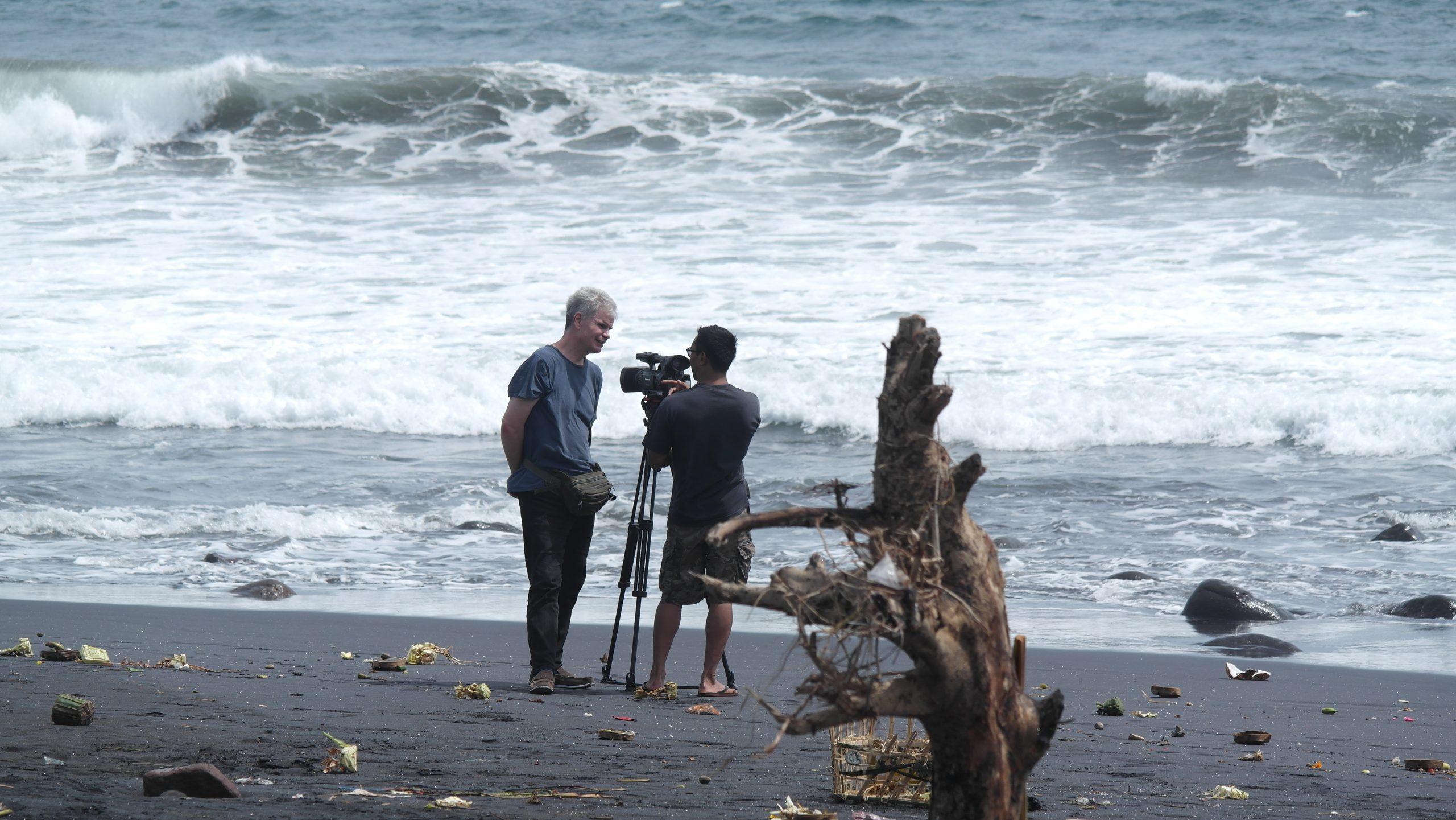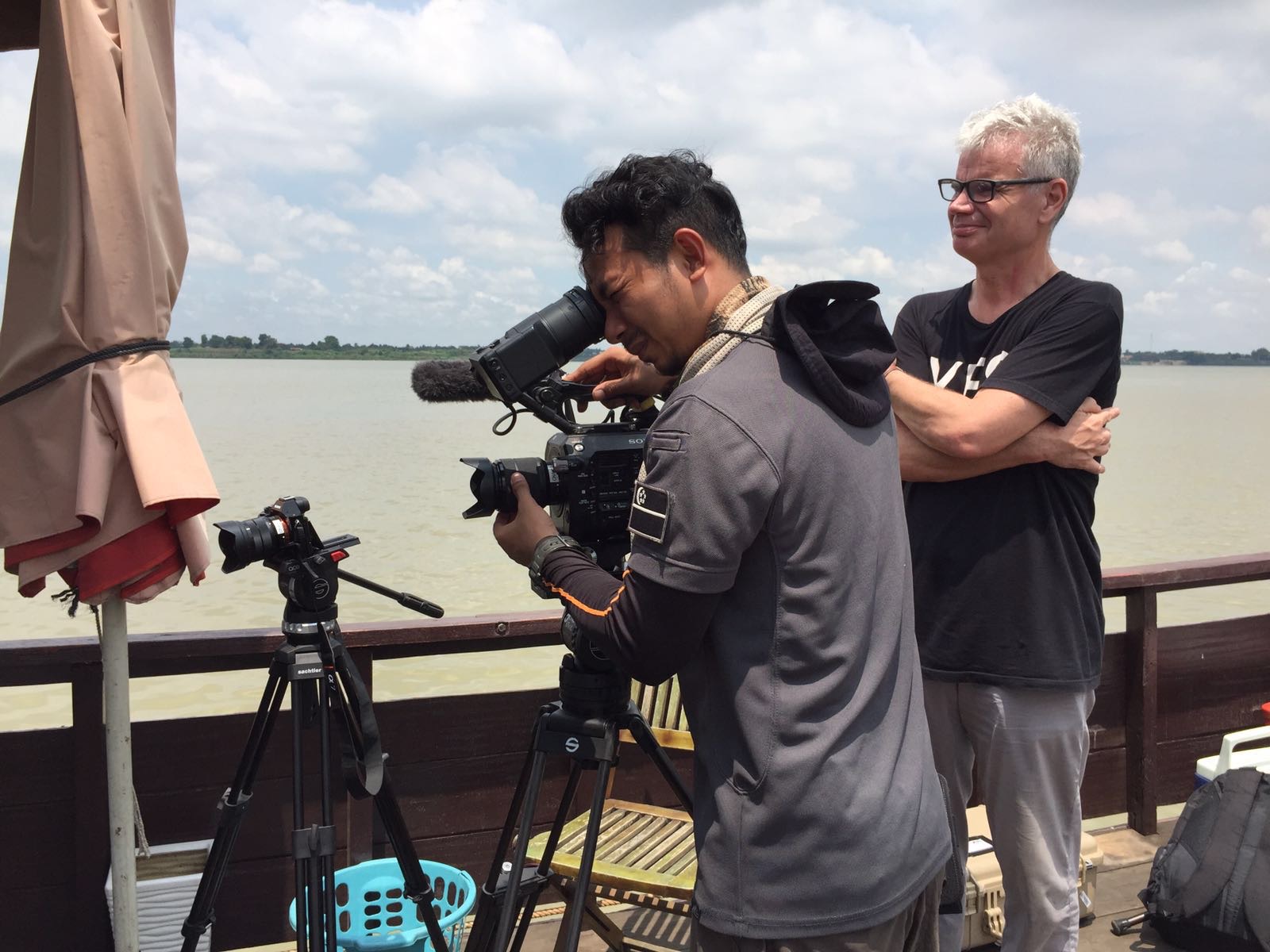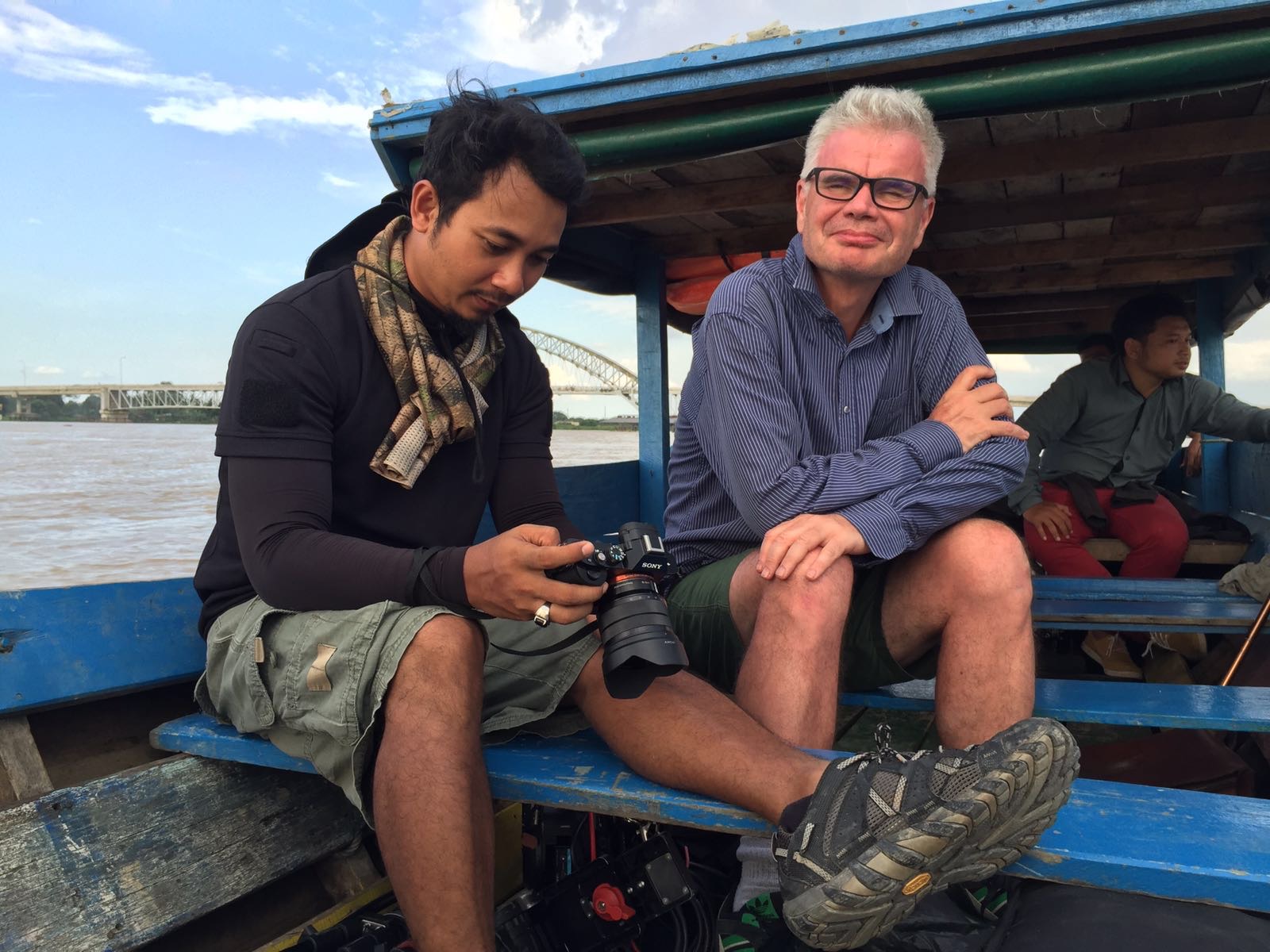
A Producer/Director’s Adventures in Asia
By Chris Hale
Some years ago, I found myself on a plane descending, through some alarming turbulence, across a seemingly endless palm oil plantation into Kuala Lumpur international airport. I was there to produce a National Geographic documentary about the coronation of the Malaysian king. Huh? Malaysia has a king? I was shockingly ignorant of Malaysian culture (Proton cars?) and history.
Since then, I have worked as a writer, producer, director, consultant and executive producer in Malaysia and Singapore and written two non-fiction books about this fascinating region. I have quite a few tales about that first expedition to Kuala Lumpur – for example, the daunting problems we had persuading the king or Yang di-Pertuan Agong to permit our cameras to go behind the scenes of his coronation and why his majesty knew nothing about our plans when I first bowed my way into his palace… And what exactly was the role of the Lord High Chamberlain?
Suffice it to say, it was an adventure. I met a number of talented producers in Malaysia and returned many times to write and/or executive produce documentaries commissioned by the History Channel. AETN has an office in Singapore. I won a writing award for a special about the ‘Malayan Emergency’ and soon afterwards, began researching a new book about this colonial rumble in the jungle.
All this led to a job offer in Singapore – as the executive producer of Channel News Asia International, a department of Singapore’s biggest public broadcaster. I accepted the job mainly because a brilliant Malaysian academic, Dr Farish Noor, presented short documentaries for CNAi – and I was intrigued. We also made business shows and even something we called ‘Lux Asia’.
Over the next few years, we slowly developed CNAi as a documentary production unit. This required a sometimes painful transition from news story thinking to documentary story telling. Like any broadcaster, Channel News Asia is constrained by government – and in Singapore, we faced a thicket of OB meaning ‘out of bounds’ markers. But since our little unit was ‘international’, we could investigate stories from Indonesia, Cambodia, Thailand, India and Pakistan.

We made a number of award winning documentaries for a strand called Undercover Asia – delving into the seamy underside of Asian societies. We exposed illegal abortions in Manila, indentured child labour in Pakistan and Duterte’s ‘death squads’ in the Philippines. We made a series called ‘Danger Zone’ which took intrepid presenter Arglit Boonyai to Iraq, Kabul and Fukushima, winning two awards for the Kabul documentary.
Most ambitiously, we developed a series we called ‘Power and Piety’ which dug into the roots of religious conflict in Indonesia, Myanmar and the United States. Our presenter was Mobeen Azhar, who went on to an illustrious career at the BBC. One of our most talented producers, Pearl Forss, began making documentaries under the banner of ‘The New Silk Road’ about China’s ‘One Belt One Road’ – shooting in the most challenging conditions all across Central Asia and beyond. Since the Singapore government has the most delicate diplomatic relationship with China, this series required the most subtle approach. But Pearl never pulled her punches.
It was when I tried to develop a big science series, a Southeast Asian rival to Horizon and Equinox that the project faltered. Apparently, Channel News Asia wasn’t prepared to ‘do science’ – and I concluded it was time to move on. My swan song was a series of hour long documentaries with my good friend Dr Farish… I will never forget his astonishing ‘piece to camera’ about what it feels like as a teacher to walk into Tuol Sleng, the killing centre the Khmer Rouge built in a school in Phnom Penh.

Reflecting on the differences between media cultures in the UK and Southeast Asia, I would make two points. First, I encountered an embedded ‘news’ culture that understood documentary to be a compilation of facts illustrated by ‘profiles’. I saw my job as introducing producers to storytelling skills and emphasising the vital role of human conflict in telling stories. No conflict, no story.
Secondly, in both Malaysia and Singapore albeit for different reasons, we had to negotiate a censorship culture that had immovable OB markers: basically stuff that could not be said. At the basic level, you couldn’t question the sanctified role of the ‘father of the nation’ Lee Kuan Yew who passed away while I was working in Singapore. A tougher challenge was religion. Malaysia is a Muslim majority country and any criticism of the faith and its practitioners was definitively out of bounds. In Singapore, a secular society with a Chinese majority and a Malay Muslim minority, the OB markers fell on any suggestion that faith could provoke conflict between Singaporean citizens.
And finally – a caveat…A big one. We westerners should be wary of crashing into Asian cultures waving the banner of media freedom. The most creative Malaysians and Singaporeans are more than capable of pushing the envelope themselves – and good luck to them.
Chris Hale is a Producer/Director and Edit Producer who has delivered blue chip documentaries for major broadcasters including the BBC, Channel 4, National Geographic and Discovery. You can view his ProductionBase profile here.